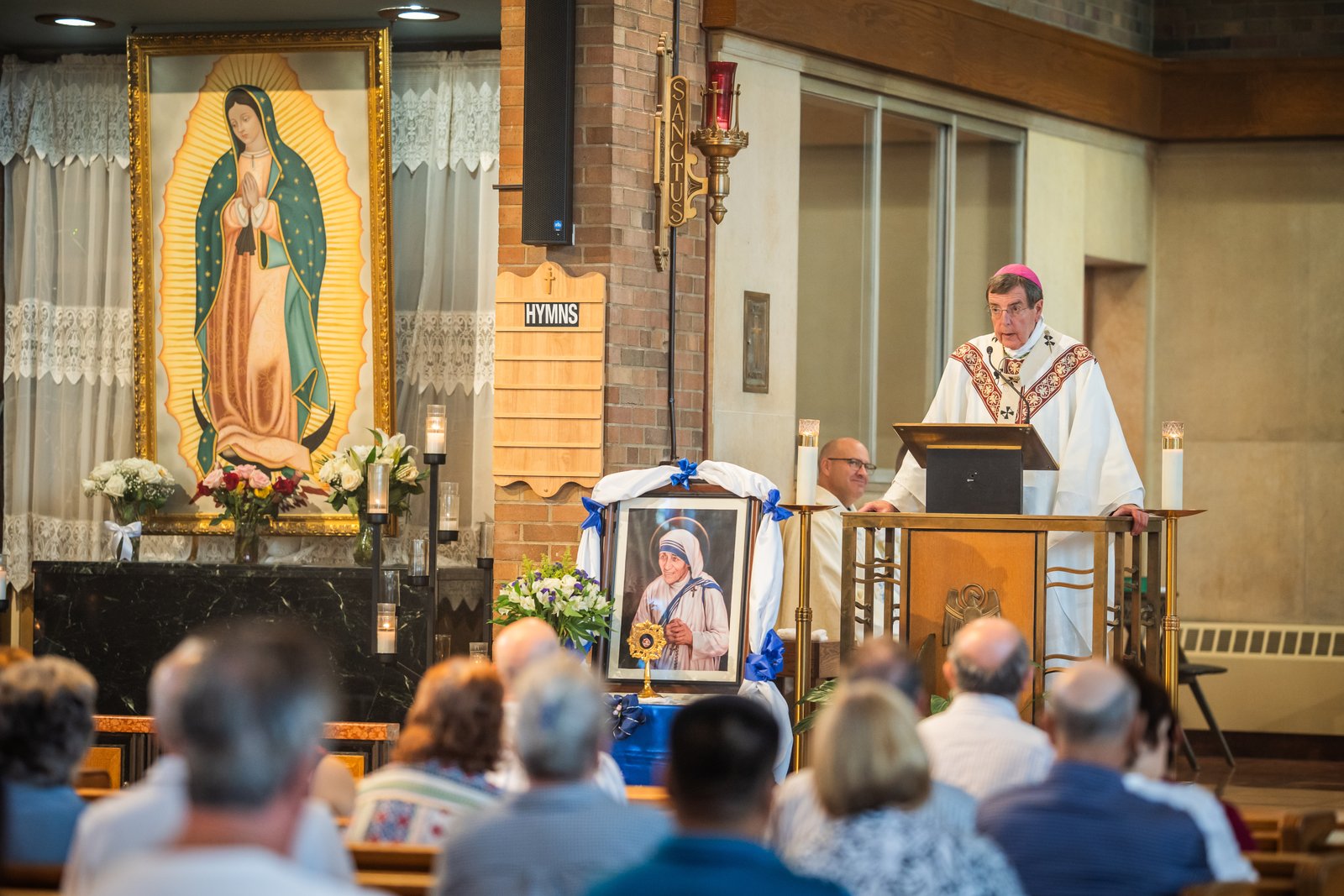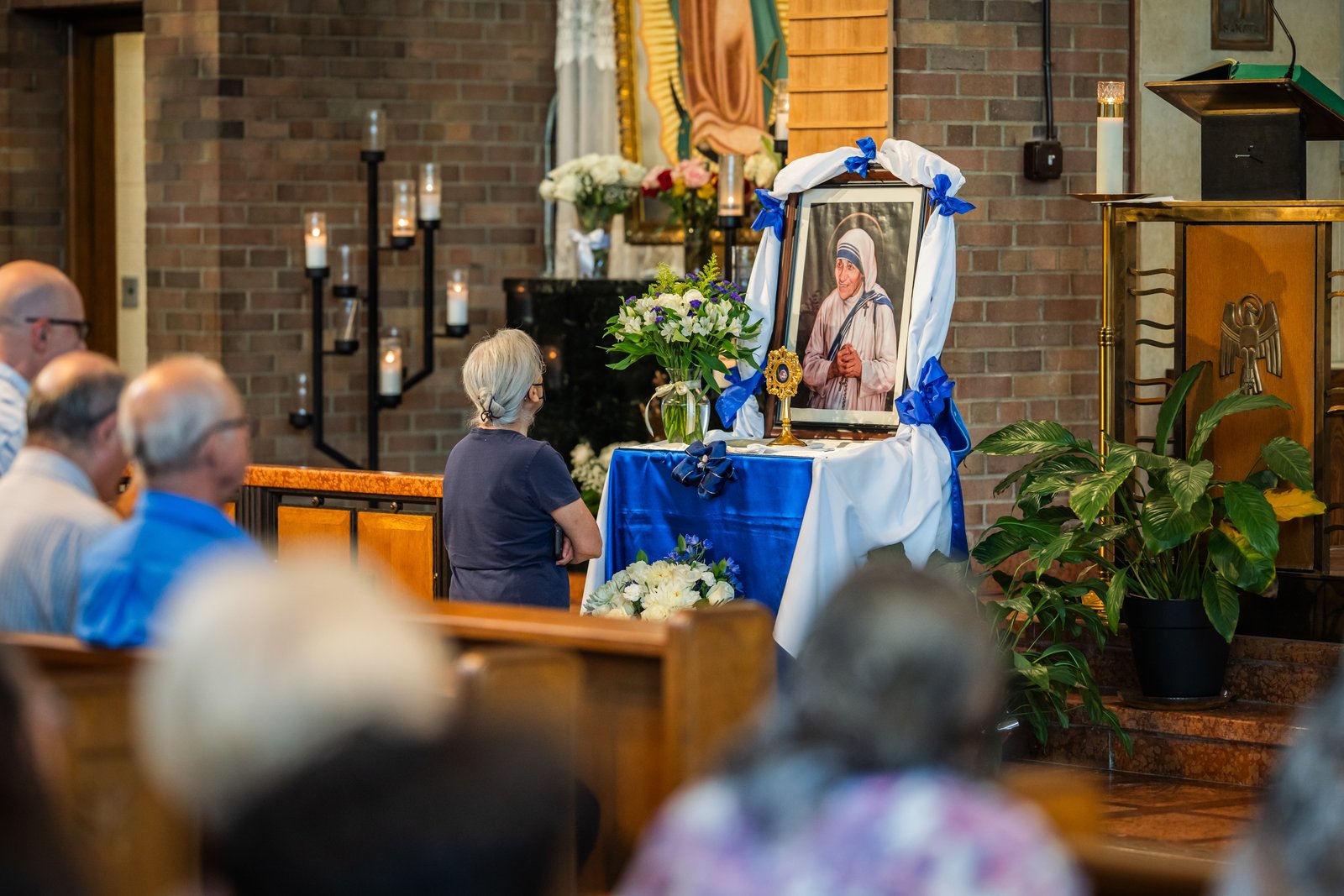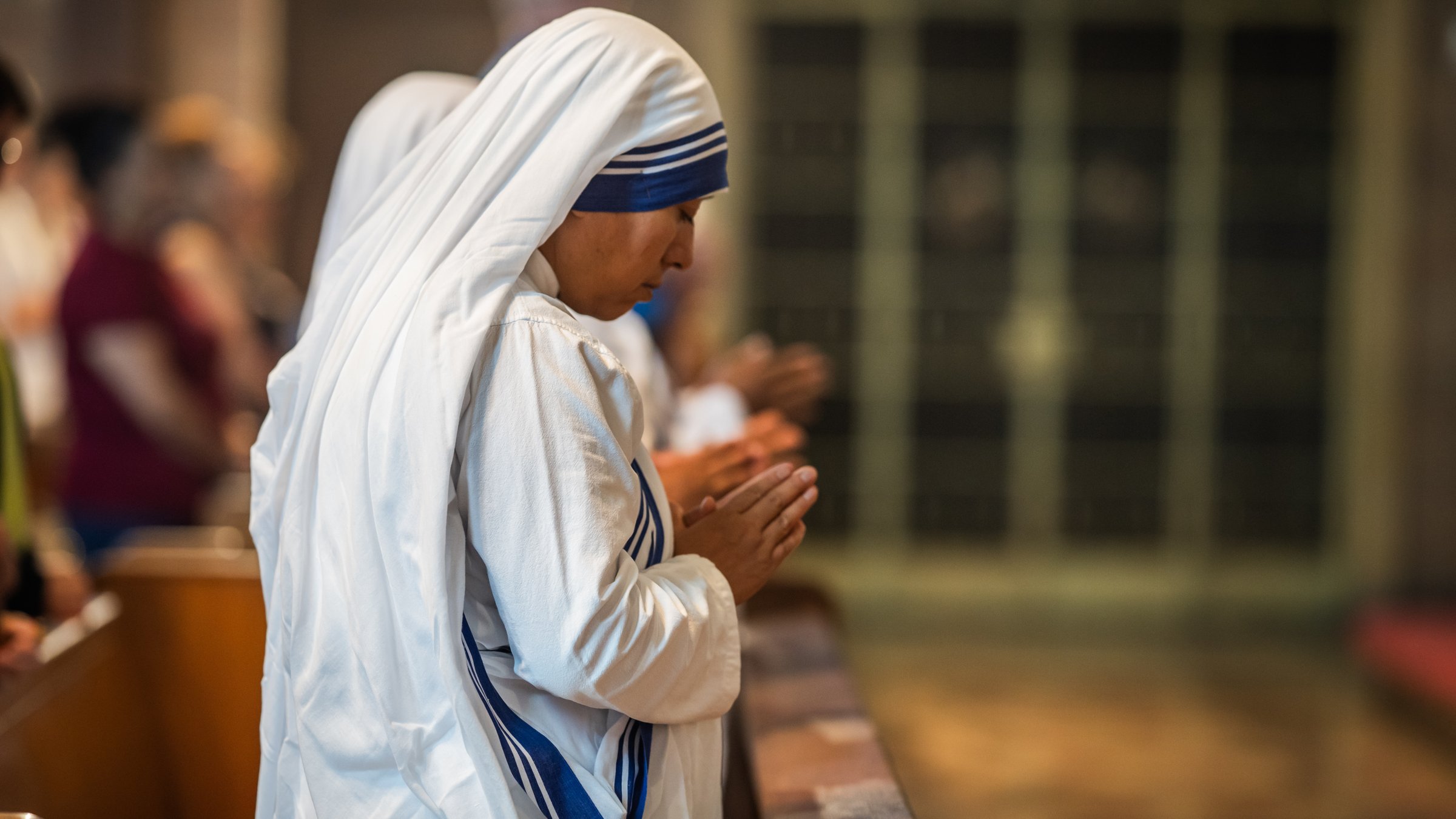Missionaries of Charity, who have maintained a presence in Detroit since 1979, are a reminder of St. Teresa's charisms
DETROIT — Faithful gathered at St. Gabriel Church in Mexicantown in southwest Detroit to celebrate the feast of St. Teresa of Calcutta on Tuesday, Sept. 5. Archbishop Allen H. Vigneron celebrated Mass to honor her legacy, which has a presence in the city thanks to the work of the Missionaries of Charity.
The nuns have had a presence in Detroit since 1979, and in Corktown since 1984, thanks to a chance encounter between a Detroit priest and Mother Teresa herself on a Chicago flight in 1972.
Archbishop Vigneron thanked the sisters for their continued presence in Detroit and their representation of the charisms of St. Teresa.
“I want to offer a word of congratulations to the sisters, but they are very shy about such things, and so I will simply acknowledge the great value of their presence here and offer them a word of gratitude that they continue to witness here at St. Gabriel Parish in southwest Detroit and the archdiocese,” Archbishop Vigneron said.
The archbishop then led all those present in praying a Hail Mary in gratitude for the sisters.

In keeping with the sisters' humble nature, they declined an interview with Detroit Catholic.
Following the Mass, the faithful had the opportunity to venerate a relic of St. Teresa, who visited the city of Detroit twice.
“(St. Teresa) was one of the most renowned people of the 20th century,” Archbishop Vigneron said in his homily. “She was so honored by the Indian people themselves as to have given her a state funeral. Though they appreciated what she did — the marvels, the love she showed, the works she did — they did not, I think, fully understand that these works of love, to the very least, were first of all a response to her love of the Lord Jesus.”
St. Teresa is the ideal example of what it means to be engaged in works of mercy, Archbishop Vigneron explained.
“All of the works of mercy must be centered on Christ,” Archbishop Vigneron said. “They must be founded on his love, a response to his love. Her works were, first of all, centered on the person of Jesus and then centered on the individual. Her concern was always for each person in front of her in whom she saw Christ and for whom she cared with the love of Christ.

“And in this way, she found her holiness by being an evangelist, being a witness to Jesus, his good news, his love for us all,” the archbishop added.
Archbishop Vigneron reflected on one of his favorite remarks made by St. Teresa: “The poorest of the poor are those who feel that they are unloved.”
That is the worst form of poverty, Archbishop Vigneron added, and it can be found wherever we go.
“Through that poverty, we can address the love of Jesus and show the unloved that they are loved by Christ,” as Mother Teresa did, Archbishop Vigneron said, and the Missionaries of Charity serving in the city of Detroit continue to remind all of Christ's love.
Copy Permalink
Feast days












